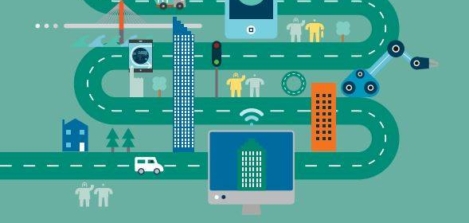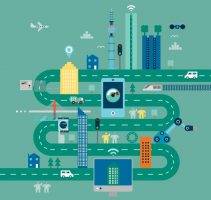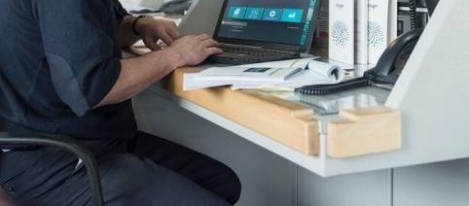July 25, 2016
Outmoded desk phone will disappear within next couple of years 0
 A new survey has confirmed the imminent death of the ‘nearly useless’ desk phone, which while still in evidence within many organisations, is believed by one third of workers will disappear in two to three years. With both corporate and remote workers increasingly away from their desks, 65 percent already have a ‘desk phone optional’ work environment and over half (59 percent) believe the desk phone is outdated. The 2016 Report on Business Communications in the Era of the Anywhere Worker, by Dialpad, among end users to executives, on cloud communications adoption rates and expectations, also found that businesses of all sizes are adapting to the “anywhere worker” movement and as employees increasingly rely exclusively on mobile technologies, the organisations they work for are quickly evolving to meet their mobility demands and prepare for more anywhere workers in the future. In fact, 84 percent of responding companies already have remote workers.
A new survey has confirmed the imminent death of the ‘nearly useless’ desk phone, which while still in evidence within many organisations, is believed by one third of workers will disappear in two to three years. With both corporate and remote workers increasingly away from their desks, 65 percent already have a ‘desk phone optional’ work environment and over half (59 percent) believe the desk phone is outdated. The 2016 Report on Business Communications in the Era of the Anywhere Worker, by Dialpad, among end users to executives, on cloud communications adoption rates and expectations, also found that businesses of all sizes are adapting to the “anywhere worker” movement and as employees increasingly rely exclusively on mobile technologies, the organisations they work for are quickly evolving to meet their mobility demands and prepare for more anywhere workers in the future. In fact, 84 percent of responding companies already have remote workers.










 Over the past few years, there has been talk that we are approaching the end of the era of Moore’s Law. The law originated when the technologist Gordon Moore, who later founded Intel, wrote
Over the past few years, there has been talk that we are approaching the end of the era of Moore’s Law. The law originated when the technologist Gordon Moore, who later founded Intel, wrote 
 Global law firm Osborne Clarke has released its fourth
Global law firm Osborne Clarke has released its fourth 
 A coalition of twenty major European telecommunications firms has come together to drive the rapid creation of a continent wide 5G network and warn national Governments and the EU of the dangers of over-regulation. The seven page document entitled the
A coalition of twenty major European telecommunications firms has come together to drive the rapid creation of a continent wide 5G network and warn national Governments and the EU of the dangers of over-regulation. The seven page document entitled the 

 According to
According to 
 Just one in three IT decision makers believe advances such as cloud-based solutions, big data and wearable tech will be available in their industry within the next 12 months, according to a new study from Capita. Although the report – Trends vs Technologies – has yet to be published, the firm has released some of its findings. Based on a survey of IT professionals in the insurance, finance, legal services and manufacturing sectors, the study analyses nine key organisational trends and the implementation of related technology. The report claims that while many decision makers describe a tech trend as being relevant to their industry, several barriers to implementation mean solutions are not yet ready and in many cases might be lagging behind consumer take-up of the new technology. The trends named in the report are Big Data, Digital Workplace, Artificial Intelligence, Internet of Things, Wearable Tech, Robotics, Cloud Based Solutions, 3D Printers and Virtual Reality.
Just one in three IT decision makers believe advances such as cloud-based solutions, big data and wearable tech will be available in their industry within the next 12 months, according to a new study from Capita. Although the report – Trends vs Technologies – has yet to be published, the firm has released some of its findings. Based on a survey of IT professionals in the insurance, finance, legal services and manufacturing sectors, the study analyses nine key organisational trends and the implementation of related technology. The report claims that while many decision makers describe a tech trend as being relevant to their industry, several barriers to implementation mean solutions are not yet ready and in many cases might be lagging behind consumer take-up of the new technology. The trends named in the report are Big Data, Digital Workplace, Artificial Intelligence, Internet of Things, Wearable Tech, Robotics, Cloud Based Solutions, 3D Printers and Virtual Reality.


 Tim Peake’s recent return home from space at the end of a six month stay in the International Space Station highlighted just how essential it is for people to stay in contact with their friends, family and the rest of the world, literally from wherever they may be. Of course, back on Earth we now take it for granted that we are in a state of constant connectedness to the rest of the world. So the idea of someone being out of contact, even for brief periods of time, strikes us as odd. Perhaps that partly explains our fascination with the experiences of astronauts and other people who cannot take connectivity for granted. But it’s not just astronauts who have to consider how to enjoy the connectedness that we normally assume to be ours by right. People who work at sea face the same challenge and you could argue that it is more important for such truly remote workers to be in contact with other people and the Internet. So who fares better when it comes to achieving connectivity?
Tim Peake’s recent return home from space at the end of a six month stay in the International Space Station highlighted just how essential it is for people to stay in contact with their friends, family and the rest of the world, literally from wherever they may be. Of course, back on Earth we now take it for granted that we are in a state of constant connectedness to the rest of the world. So the idea of someone being out of contact, even for brief periods of time, strikes us as odd. Perhaps that partly explains our fascination with the experiences of astronauts and other people who cannot take connectivity for granted. But it’s not just astronauts who have to consider how to enjoy the connectedness that we normally assume to be ours by right. People who work at sea face the same challenge and you could argue that it is more important for such truly remote workers to be in contact with other people and the Internet. So who fares better when it comes to achieving connectivity?









July 13, 2016
World FM Day and the workplace design and management elephant
by Mark Eltringham • Comment, Events, Facilities management
More →